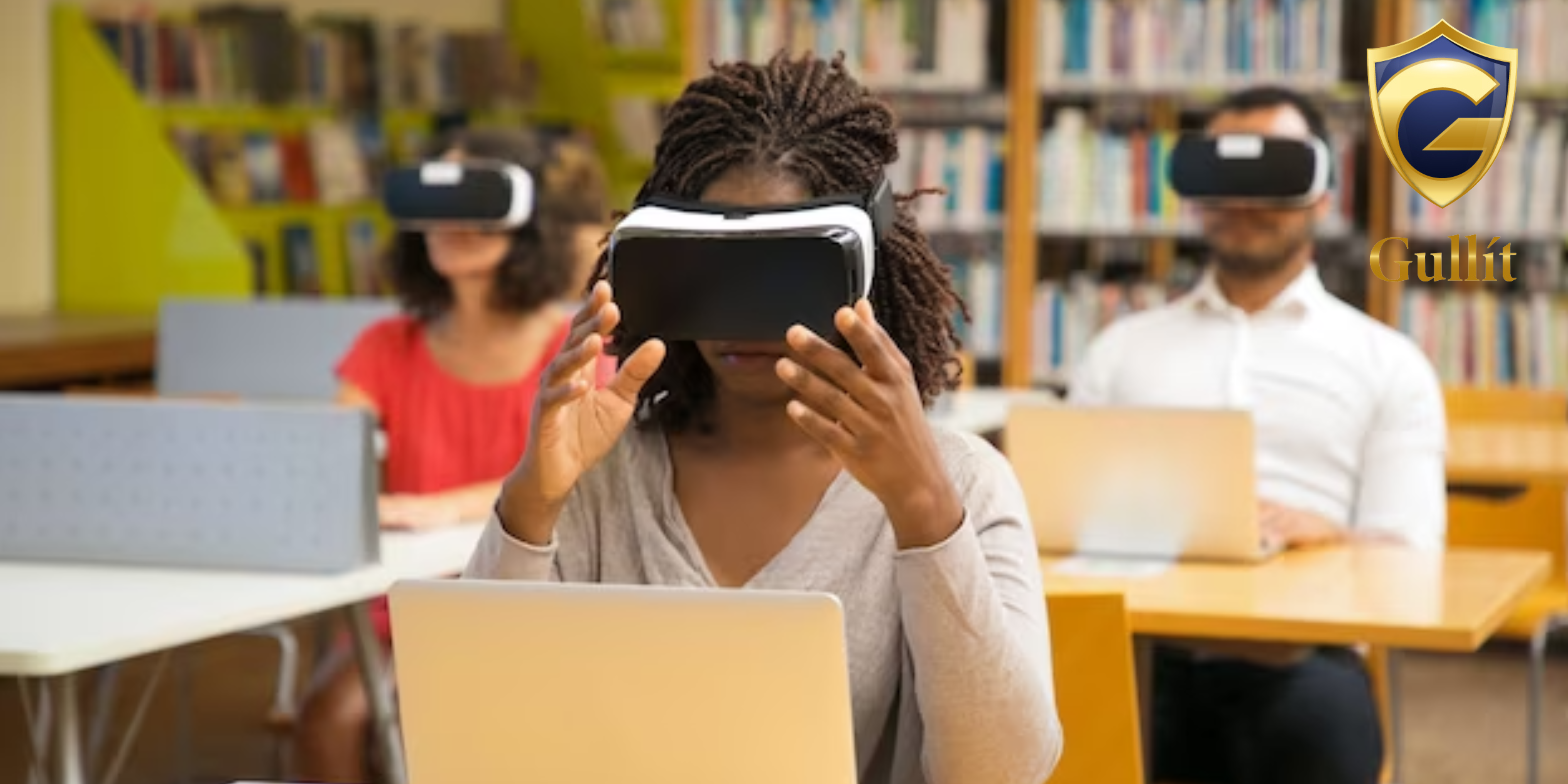Today, we bear witness to the meteoric rise of Educational Technology, an innovative wave of technologies that is reshaping classrooms and transforming the way we learn. As this transformative wave sweeps across the globe, it brings with it dramatic shifts, promising to bridge educational gaps, empower learners, and unlock untold potential.
EdTech, the fusion of education and technology, is transforming classrooms into dynamic spaces where creativity and knowledge flourish. From virtual reality to artificial intelligence, these cutting-edge tools are revolutionising the way students learn, paving the way for inclusive and personalised education experiences.
No longer constrained by geographic limitations or economic constraints, learners can tap into a vast repository of educational resources and expertise with a mere swipe of their fingertips. The barriers of time and distance are shattered, offering a lifeline to those previously marginalised by circumstance.
Edtech Trends that Are Transforming the Industry in Africa
Artificial Intelligence
Artificial intelligence (AI) is rapidly changing the world, and education is no exception. In Africa, where access to quality education is often limited, AI has the potential to revolutionize learning and make it more accessible to everyone.
There are already several ways that AI is being used in education in Africa. For example, AI-powered chatbots can provide students with personalized tutoring and support, and AI-enabled learning platforms can deliver personalized learning experiences that are tailored to each student’s individual needs.
According to Tech in Africa, here are some specific examples of how AI is being used in education in Africa:
Mtabe is a Tanzanian ed-tech startup that uses AI to provide personalized learning to students in Tanzania. Mtabe’s platform uses AI to analyze each student’s learning style and progress and then generates personalized learning content that is tailored to each student’s individual needs.
Close to Tanzania is M-Shule, an ed-tech startup in Kenya that uses AI to provide educational content and support to students in Kenya. M-Shule’s platform uses AI to track each student’s progress, identify areas where they need additional support, and provide them with personalized learning resources.
Codar Africa is an ed-tech startup in Nigeria that uses AI to help students learn computer science and other technical skills. Codar Africa’s platform uses AI to provide personalized learning content, track student progress, and provide feedback.
These are just a few examples of how AI is being used in education in Africa. As AI technology continues to develop, we can expect to see even more innovative and effective ways to use AI to improve education on the continent.
Adaptive Learning
A conventional learning paradigm is built on the premise that all students should concentrate on the same subject matter and progress at the same rate. However, rather than the other way around, the educational system has to adjust to the demands of the students.
Adaptive learning is made feasible by data science and artificial intelligence, which modify the presentation of the subject depending on student performance. Students do better overall when the material is presented differently, and it also encourages them to concentrate on their strengths.
In South Africa, for example, the government has launched an initiative called the National Education Collaboration Trust (NECT), which aims to improve the quality of education in the country by leveraging adaptive learning technologies. Through this initiative, over 2 million students across South Africa now have access to personalized learning experiences that are tailored to their unique needs and abilities.
By harnessing the power of technology to deliver personalized learning experiences, adaptive learning platforms are helping to create a more equitable and effective education system for students in Africa and around the world.
Data Analytics
Data analytics in EdTech may be used to monitor learners’ progress, identify areas of strength and weakness, and make individualised suggestions on the material and resources they should consume. A good example of application of Data Analytics to EdTech is Zeraki.
Zeraki has a data analytics system to help schools to better manage their students’ data. The data analytics platform allows teachers to upload students’ grades from their mobile devices,
and gives a performance breakdown for each student, subject or stream.
The platform, which is more popular than digital learning platforms, also integrates a bulk messaging service for internal and external communication, in addition to allowing parents an avenue for tracking student performance and fee payment.
Extended Reality
Virtual and augmented reality technology will revolutionize how students engage with instructional information. Virtual reality immerses learners in an experience that allows them to explore complicated topics and ideas in a fun and engaging manner. For example, VR may be used to recreate a scientific experiment or a historical event, giving students personal experience. Augmented reality may also be used to superimpose digital data over the actual environment, resulting in interactive learning experiences.
Richard Varha Technical High School in South Africa has officially opened its doors to a new era of education technology with the unveiling of the first South African Extended Reality (XR) public school classroom.
Fitted with world-class, cutting-edge education technology, the classroom was donated by XR EdTech company Nudle and Chinese VR Tech education giant KMAX, as part of their mission to revolutionise the way students in Africa learn.
The initiative came to be as a result of a partnership with the Eastern Cape’s Department of Education which sought to integrate 4th industrial revolution technologies into the current education system. Seeing the opportunity, Nudle pitched the idea of an extended reality smart school as a way to empower students with technology.
Extended Reality technology, according to Munsami (founder and CEO, Nudle), can transform education by offering immersive, interactive, and engaging learning experiences. Through XR experiences, learners can live the subject matter, which leads to memorable and engaging learning experiences.
Conclusion
Edtech in Africa is more than just a buzzword. It has the potential to drastically improve access to education across the continent, providing a platform for better learning experiences, improved educational outcomes, and the equitable distribution of educational resources. As African cultures increasingly embrace digital technologies, and as governments increasingly invest in edtech solutions, we can rest assured that the continent will make headway in bridging the existing educational divide. The future looks bright for edtech in Africa and with continued investment and support, it has the potential to help propel the continent into the digital era.



No responses yet